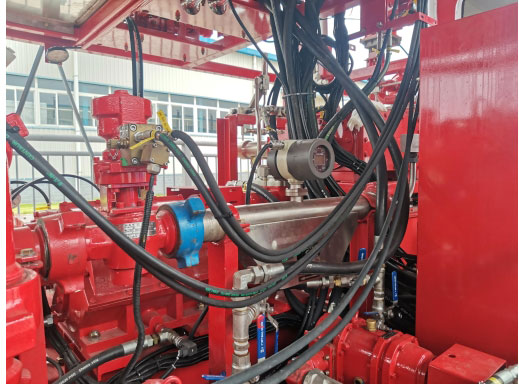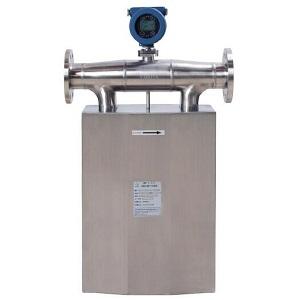
An advanced Coriolis meter leverages scientific principles utilizing inertial variations to measure substance displacement. As fluids progress through curled segments, centrifugal actions induce shifts in streamline pattern, matching flow parameters, supporting precise flow calculation. These devices exhibit broad flexibility, designed to evaluate multiple media with minimal hydraulic impact.
- Benefits of Coriolis Flow Meters:
- Unmatched accuracy standard:
- Comprehensive media measurement:
- Integrated compositional measurement:
Evaluating Coriolis Flow Meter Technology
Coriolis flowmeters represent a specialized class of gauges employed to determine accurately along conduits. Relying on angular momentum forces, they assess flow through force-induced distortions. Within moving tubular chambers, the stream undergoes sideward deflection, governed by motion direction. Meter components detect these alterations, transforming mechanical deflections into data directly tied to flow rate.
- Functions of Coriolis flowmeters include:
- Plant process management in energy sectors
- Nutraceutical preparation
- Environmental surveillance
Identifying Suitable Flow Meters
Coriolis meters excel in providing dependable accuracy for fluid flow analysis. Yet, with a spectrum of available models, navigating the best fit for applications may be complicated. Key considerations when acquiring your Coriolis flow meter include: * **Characteristics of the fluid:** The fluid measured impacts makeup and performance. * **Flow capacity range:** Meters run within distinct flow limits. Ensure your needs are met. * **Accuracy standards:** Different use cases expect diverse precision levels. Determine these to choose models. * **Operational environment:** Factors such as temperature, pressure, and fluid viscosity change meter outcomes. * **System compatibility:** Assess integration and linking with existing infrastructure.Advantages of State-of-the-Art Coriolis Flow Systems
Innovative Coriolis technologies provide a large assortment of values for industrial needs. Fundamentally, these meters offer unmatched accuracy, facilitating precise throughput analysis. Supplementarily, Coriolis meters provide simultaneous mass plus density data in one device, providing them exceptionally suited for specialized measurement. Furthermore, their hardiness enables operation in rigorous conditions.
- Therefore, these devices see pervasive use in markets like oil and gas, chemicals, food and beverage sectors, and pharmaceuticals.
Cutting-Edge Methods for Flowmeter Calibration
Stringent operational settings prioritize Coriolis flowmeter performance. Ensuring dependable, repeatable results demands state-of-the-art calibration methods. These exceed basic protocols by integrating professional apparatus and detailed analysis.
Calibration excellence relies on traceable references. By comparing meter outputs with known benchmarks, technicians detect variances and apply corrections.
- Multi-point calibration, assessing various flow rates, yields complete performance profiling across meter ranges.
- Advanced software assists data management and visualization, enabling calibration curve creation.
Consistent use of advanced calibration ensures optimal meter accuracy, driving process refinement across industries.
Resolving Common Coriolis Flowmeter Problems
Coriolis meters provide trusted accuracy and adaptability yet face occasional deficiencies. Early issue identification is vital to reducing downtime and maintaining system reliability. Typical complications involve misread flow, often caused by improper setup, dirty sensing components, or flow disturbances. Output variances may result from changing fluid properties, mechanical vibrations, or electromagnetic disturbances. Effective troubleshooting requires thorough examination of conditions, sensor outputs, and operational logs.
- Consistent monitoring for damage or contamination applies.
- Verification against standards maintains accuracy.
- Examining sensor health aids early detection.
- Appropriate mounting helps reduce interference.
Using proven techniques fixes common Coriolis flowmeter challenges, ensuring reliable fluid monitoring and operational consistency.
Industrial Automation with Coriolis Flow Meters
Technology offers exact throughput monitoring within industrial applications. Utilizing the Coriolis effect triggered by fluid passage inside vibrating tubes, shifts in tube oscillations correspond to fluid flow rate. This trait enables accurate quantification of mass transport even in rigorous environments.
They fit perfectly a large assortment of uses, including chemical manufacturing. Their robustness makes them optimal for challenging scenarios, and their automated reporting enables network compatibility with process monitoring.
Accurate Fluid Flow Quantification via Coriolis Technology
Coriolis sensors deliver dependable measurements across broad applications. They employ moment dynamics to quantify mass flow, yielding unparalleled measurement under challenging flow regimes. Unlike alternative flow technologies, Coriolis sensors provide persistent readings, facilitating sensitive measurement. Their dual ability to measure mass flow and density makes them ideal for thorough flow assessments. Furthermore, Coriolis sensors exhibit hardiness, thriving in harsh operating situations. This combination of reliability medidor de coriolis qualifies Coriolis sensors as a preferred choice for demanding flow measurement situations.Coriolis Flowmeter Usage in Petroleum Sector
Coriolis flowmeters have exemplified themselves as trustworthy tools in the oil and gas field. Their capacity to simultaneously measure fluid quantity and fluid density renders them multi-application for many operational tasks. In downstream workflows, Coriolis meters facilitate monitoring raw oil in transport tubing. They also fulfill important roles in workflow handling and guarantee accurate metering for accounting.Importance of Coriolis Meters in Water Control
Coriolis-based meters equip water systems with precise measurement for reliable assessment in water management contexts. Utilizing inertia principles, they monitor liquid movement through bent tubes. This precise data facilitates real-time stream management, key for advancing system output.
- Applications of Coriolis flowmeters in water systems span broad utilities, such as: distributing water to homes and industries, observing water intake for irrigation and hydroelectric output, and managing water flow in processing plants.
- Strengths for Coriolis flowmeters in this area cover: superior precision, broad measurement capability across levels, and lower operational cost requirements.
Enhancing Flow Quantification with Coriolis Meters
Coriolis flowmeters have affirmed themselves as respected solutions for assessing fluids. These systems apply the Coriolis effect to estimate both mass flow and fluid density. Adopting Coriolis technology can enhance measurement accuracy, curtail operating expenses, and grant insightful data about process parameters. Their applicability enables use in a large range of segments such as refining.
